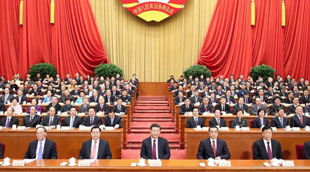
Kampala, Uganda | AFP |
Uganda’s veteran ruler Yoweri Museveni, who is standing for re-election on Thursday, has said he is in favour of his country pulling out of the “partisan” International Criminal Court based in The Hague.

Museveni, who came to power in 1986, made the remarks during a televised debate late Saturday — his first ever with his presidential challengers.
“The ICC is not serious, it is partisan, it is not balanced, it is not very serious,” he said, referring to The Hague based court set up in 2002 as the last resort to try war criminals and perpetrators of genocide never tried at home.
The ICC has opened probes involving eight nations, all of them African: Kenya, Ivory Coast, Libya, Sudan, Democratic Republic of Congo, Central African Republic, Uganda and Mali.
Many in Africa have railed against the court as being biased and targeting Africans with some leaders on the continent accusing it of acting as the judicial arm of foreign powers.
“For instance, there are so many leaders who should have been tried but because it (the ICC) is not serious they have not tried them. So we have lost interest in ICC,” Museveni said.
Museveni faces seven challengers in the presidential election.
During the last African Union summit in January in the Ethiopian capital Addis Ababa, African leaders backed a call led by Kenya to quit the ICC.
Meanwhile, the International Criminal Court on Friday upheld an appeal by Kenyan Deputy President William Ruto and barred the use of recanted testimonies in the crimes against humanity case brought against him.
In what will be seen as a major victory for the Kenyan government and may sound the death knell for the prosecution in its faltering case, judge Piotr Hofmanski said the court had interpreted “too narrowly” the rules on using such evidence.

This was “to the detriment” of Ruto and his co-accused radio boss Joshua arap Sang as his defence team had for example been denied the chance to cross-examine witnesses.
In a unanimous decision “the appeals chamber has decided to reverse the decision that… prior recorded testimony can be used,” Hofmanski said.
Ruto, 49, and Sang, 40, face three charges of crimes against humanity namely murder, forcible deportation and persecution arising out of Kenya’s disputed elections in December 2007.
 The Independent Uganda: You get the Truth we Pay the Price
The Independent Uganda: You get the Truth we Pay the Price


